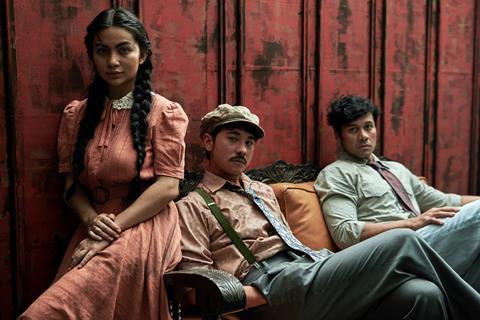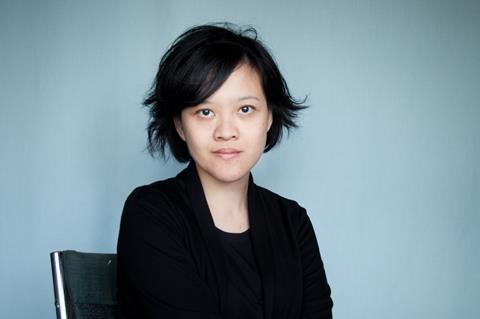
Audiences will be getting a double dose of director Mouly Surya this year. The Indonesian filmmaker’s new feature The City Is A Battlefield closes International Film Festival Rotterdam this weekend.
Sold by Asian Shadows, it already has a Dutch distributor, Periscoop, who plan to launch it in Dutch cinemas in April, having previously released her 2017 Cannes Directors Fortnight title Marlina The Murderer in Four Acts.
Surya has another feature in post-production, thriller Tukar Takdir, which should be ready by the autumn.
All this comes at a busy time for Surya, who recently made her English language debut with Netflix thriller Trigger Warning, starring Jessica Alba, which launched on the platform last year.
This City Is A Battlefield is adapted from Mochtar Lubis’ 1952 novel A Road With No End, set during the Indonesian war of independence from the Dutch after World War II. It is both an action film, telling the independence story from an Indonesian perspective, and also a romantic drama, centring on a woman whose affections are divided between her resistance fighter husband and his charming comrade-in-arms. Chicco Jerikho, Ariel Tatum and Jerome Kurnia lead the cast.
Complex co-production

The film is an elaborate co-production involving multiple companies. From Indonesia are Cinesurya, the company Surya and her partner Rama Adi formed in 2007, as well as Starvsion and Kaninga. Rotterdam-based Volya Films is the Dutch co-producer. The production has Cambodian (Kongchak Pictures), Filipino (Epicmedia Productions), Thai (Purin Pictures), Singaporean (Giraffe Pictures) and French (Shasha &Co) support. There is backing too from IFFR’s Hubert Bals Fund, Cinema du Monde and even some Nordic support through Norway’s Sørfond.
“It’s a long list,” laughs Surya, who first came across the book while a literature student. On the one hand, the range of co-producers and financiers is a testament to Surya’s pulling power: everyone wants to work with her. On the other, it reveals how tough it is to pull a project of this scale together in Indonesia.
The movie was originally due to shoot in 2020 but was knocked sideways by the pandemic. “We decided to halt the project. We were going to make this historical epic but we didn’t have that Hollywood budget. We really couldn’t spare any money making sure that everybody wasn’t getting Covid.”
Then the Netflix movie came along, delaying matters further. But Surya carried on developing the project at the same time.
One opportunity that arose partly because of the delay was to take the project to Locarno’s Open Doors in 2020, where it won the Sørfond Award.”We got a lot of great feedback and I do have a strong belief in co-production,” the director says of the help the Swiss event gave her to find both funding and creative collaborators in Europe.
In hindsight, the director believes that taking time out to work on the Netflix project helped her. “This City Is A Battlefield is quite an elaborate production by Indonesian standards and I think I wouldn’t have been able to go through that mentally without having done the American film beforehand…coming back from America, I was trying to push the boundaries, to push the limits.”
“The experience of working with them [Netflix] was great,” Surya continues. “Specially in 2020, when I signed up for the project, to be honest, it was something unheard of - an Indonesian female filmmaker going to the US to make a film. Basically, I was plucked out of the country to be in America, the only Asian in the whole of the city” (she shot it in Santa Fe).
Asked about the toughest challenges on This City Is A Battlefield, the director acknowledges that “shooting 1946 in 2023” was very taxing. It required logistical adaptability, clever use of effects and imagination. The film was shot on real locations in Indonesia, not on sets. “In a way, it was like making a fantasy film because you don’t actually live in the 1940s.”
Setting the historical context for the film was also difficult. “It’s not like Dunkirk. Everybody knows what happened in Dunkirk,” says Surya. She credits the American editor Rob Wilson, who she worked with on Trigger Warning, with sourcing black and white newsreel archive material that opens the movie - and contextualises the story.
Now, the prolific director is already close to completing her next movie and is mulling over what do after that, but thinks she will take a short break once Tukar Takdir is completed. “I ran out of scripts I wrote during the pandemic so I’ll have to write another one. To be honest, shooting a film once a year…I know a lot of people in Indonesia do three or four. I don’t know they do it. It is mentally exhausting,” she sighs.

























No comments yet